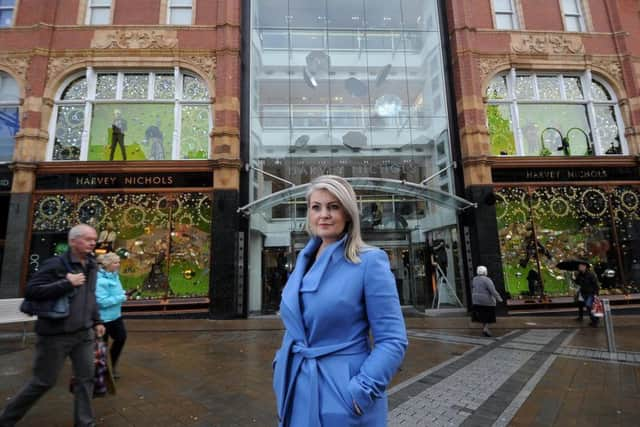Here's how many new repair shops have opened in Yorkshire during a resurgence - but Leeds stores are concerned
The number of outlets fixing everything from phones to furniture has risen by more than a third across the UK since 2010, official figures show.
And that includes repair shops in Yorkshire and the Humber going from around 500 to 710 – the fourth largest increase among regions in the UK.
Advertisement
Hide AdAdvertisement
Hide AdIn Leeds, the Yorkshire's largest city, there was a 29 per cent rise from 85 shops to 110 - although that has dipped from the figure of 130 in 2017.


10 underrated Leeds shops you always walk right pastBarnsley recorded the biggest percentage rise in the region, jumping from 10 to 20 shops, but Bradford’s number went up from 40 to 75 (88 per cent).
Across Yorkshire, repair shops for household appliances, home and garden equipment, furniture, furnishings, other personal or household goods, have shot up 59 per cent from 135 to 215 between 2010 and 2018.
Such shops in the region for computers, phones and other consumer electronics went up from 290 to 420, a 45 per cent rise.
Advertisement
Hide AdAdvertisement
Hide AdAlthough there was an increase in footwear, leather goods, watches, clocks, jewellery shops, this had come back down to the same 2010 rate of 75 by 2018.
Zero waste shop opens in Leeds city centreThe modern consumer is looking to spend their money on experiences like eating out rather than physical possessions, according to analyst Kate Hardcastle, who grew up in Calderdale and later moved to West Bretton, Wakefield.
“People are spending on experiences like never before,” she said.
"I don’t think people are saying, ‘Let’s batten down the hatches’. I think they are spending on totally different things than they used to.
Advertisement
Hide AdAdvertisement
Hide Ad“There is less ‘bragability’ about consuming things like big-label fashion and textiles.”
And there is a growing concern for the environmental effects of our throwaway culture, Hardcastle says.
While some consumers remain happy to buy a fast-fashion outfit and discard it after one wear, she says, the so-called ‘Blue Planet effect’ has seen others try to cut the waste they produce.
Retail analyst Richard Hyman said it is a “reflection that the consumer economy is clearly not in good shape in Britain” as people tire of the latest gadgets.
Advertisement
Hide AdAdvertisement
Hide Ad“I think the appetite to make-do and mend rather than to buy new is clearly an underlying factor in the economy.”
Despite the recorded rise in Leeds, some traders in the city centre are cautious about the figures.
John Taylor, 53, who offers shoe repairs at Jim’s Place in Call Lane, said: “It’s not like it used to be.”
He said: “We’ve been here 40 years so we’ve seen people come and go and the only people who have really stopped around are like Timpson, because they’ve got the backing.”
Advertisement
Hide AdAdvertisement
Hide Ad"If it was not for our regular customers, I don't think we would be around.
"I think the only reason we keep our head above water is that getting your shoes done on the internet is virtually impossible - people have got to come into town for us."
Speaking about the figures, he added: "Hats off to anyone who gives it a go nowadays."
Gary Sandhu, 42, of Digital World in Central Arcade, is having to move to a smaller unit at the row of shops following Brexit and issues such as business rate rises, rent and other fees.
Advertisement
Hide AdAdvertisement
Hide AdThe rise of the smartphone has seen the number of phone repair shops in the UK more than triple since 2010, data from the Office for National Statistics shows.
But speaking about the level of competition, he said: "We've already got five (electrical repair) shops in a small sort of area."
Brexit has been a major factor in his business problems because after the pound slumping to a 31-year low after the EU vote in 2016, his costs for parts rose, meaning he had to increase prices in his own shop.
"Most people, our regular customers, didn't like it," he said.
Advertisement
Hide AdAdvertisement
Hide AdParamjeet Sahota, who runs P&G Tech Ltd in Kirkgate Market, said: "People think it's an easy business, easy money.
"They open and then two years later they realise what they want."
He also said that the bigger technology companies provide subsidised repair rates and cheaper services.
Nevetheless, the household repairs industry is now worth an estimated £3.9bn to the UK economy, the highest value since records began in 1990, with nearly 10,000 business units across the country.
Advertisement
Hide AdAdvertisement
Hide AdBut other fix-it businesses are also doing well, the figures suggest.
Furniture restoration shops and home appliance repairers are on the rise, while the number of cobblers’ outlets is holding steady amid tough trading conditions for the UK high street.
Ikea, which famously announced in 2016 that the western world had probably hit ‘peak stuff’, is among the retail giants now considering how to respond to these changing times.
It is piloting a furniture leasing model in Switzerland, as millenials used to streaming movies or renting homes become less attached to the concept of ownership, and bosses are also considering how they can help customers repair their older items.